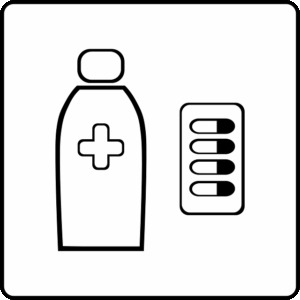Semaglutide medication is revolutionizing diabetes treatment with its unique mimicry of natural GLP-1 hormones. This long-acting formulation offers superior glycemic control, aids weight management, and minimizes hypoglycemia risks, providing a valuable tool for healthcare professionals crafting personalized diabetes care plans. By addressing individual needs and preferences, these tailored plans enhance patient outcomes, engagement, and adherence, resulting in improved quality of life. Effective integration of semaglutide into daily routines, with guidance from healthcare providers, is crucial for optimal management of type 2 diabetes. Continuous monitoring and adjustments ensure well-managed diabetes, preventing complications through a collaborative approach.
Personalized diabetes treatment is transforming lives, and at the forefront of this advancement is semaglutide medication. This article explores how understanding diabetes varies from patient to patient allows for tailored care using semaglutide. We delve into its role in management, highlighting its effectiveness for individual needs. By examining benefits, integration, and monitoring techniques, readers will grasp the power of customized diabetes care plans. Discover how semaglutide medication can be seamlessly incorporated into daily routines, offering improved blood sugar control and enhanced quality of life.
Understanding Diabetes and Personalized Treatment

Diabetes is a chronic condition that affects millions worldwide, characterized by elevated blood sugar levels. It arises from either insufficient insulin production or the body’s inability to effectively utilize insulin, leading to metabolic imbalances. Personalized diabetes treatment plans are increasingly becoming the norm, recognizing that each patient’s journey with this disease is unique. This tailored approach ensures that management strategies align with individual needs, lifestyles, and preferences.
One prominent medication in personalized diabetes care is semaglutide, a glucagon-like peptide-1 (GLP-1) receptor agonist. It mimics the effects of natural hormones, stimulating insulin release in a glucose-dependent manner while also slowing gastric emptying. This dual action helps to lower blood sugar levels and promote weight management, making it a valuable tool in personalized diabetes treatment plans.
The Role of Semaglutide in Diabetes Management

Semaglutide medication has emerged as a game-changer in diabetes management, offering significant advantages for personalized treatment plans. This innovative therapy mimicks the action of natural hormones, mimicking the body’s ability to regulate blood sugar levels. By mimicking glucagon-like peptide-1 (GLP-1), semaglutide stimulates insulin production and suppresses glucagon secretion, leading to improved glycemic control.
The medication’s long-acting formulation provides sustained benefits, reducing the need for frequent injections. This convenience, combined with its efficacy in weight management and reduced risk of hypoglycemia, makes semaglutide a valuable tool for healthcare professionals crafting tailored diabetes care plans. Its ability to address multiple aspects of diabetes treatment simultaneously contributes to improved overall patient outcomes.
How Semaglutide Medication Works for Individual Patients

Semaglutide medication is a game-changer in personalized diabetes treatment plans, offering a unique approach to blood sugar management. This innovative therapy mimics the action of a natural hormone, GLP-1 (glucagon-like peptide-1), which stimulates insulin production and suppresses glucagon release in response to food intake. By mimicking this physiological process, semaglutide helps individuals with type 2 diabetes achieve better glycemic control.
For individual patients, the efficacy of semaglutide medication is evident in its ability to reduce HbA1c levels—a measure of long-term blood sugar control. Clinical trials have shown that semaglutide can lower HbA1c by up to 1.5% compared to placebo, significantly improving overall glycemic management. Furthermore, the medication’s once-weekly administration makes it convenient for patients, potentially enhancing adherence to treatment regimens. This accessibility and effectiveness make semaglutide a valuable tool in the personalized care of diabetes, contributing to improved patient outcomes and quality of life.
Benefits of Customized Diabetes Care Plans

Personalized diabetes treatment plans offer a multitude of benefits, enhancing the overall management and quality of life for patients. One significant advantage is tailored medication regimens, such as incorporating semaglutide medication, which can provide superior glycemic control. These customized approaches consider individual patient factors, including lifestyle, preferences, and specific health needs, ensuring adherence to treatment.
Furthermore, personalized plans foster better patient engagement and education. By addressing unique challenges and goals, healthcare providers can empower individuals to actively manage their diabetes. This proactive approach may lead to improved outcomes, reduced complications, and a higher degree of satisfaction among patients, creating a more sustainable and effective long-term care strategy.
Integrating Semaglutide into Daily Routines

Integrating Semaglutide into daily routines is a significant step in personalized diabetes treatment plans. This medication, known for its efficacy in managing blood sugar levels, requires a conscious effort to incorporate it seamlessly into an individual’s life. Patients are typically prescribed semaglutide injections, which can be administered once weekly, making it a convenient option compared to frequent insulin shots. The key lies in setting reminders and establishing a consistent routine around the injection time. This could mean pairing it with daily activities like brushing teeth or breakfast.
By doing so, individuals not only ensure adherence to their treatment plan but also reduce the likelihood of side effects associated with semaglutide therapy, such as nausea or stomach discomfort. It’s important to remember that healthcare professionals play a crucial role in guiding patients through this process, offering support and addressing any concerns regarding the medication’s integration into daily life. They can provide tailored advice and ensure the patient feels empowered to manage their diabetes effectively.
Monitoring and Adjusting Your Diabetes Treatment Plan

Personalized diabetes treatment plans require ongoing monitoring and adjustments to ensure optimal blood sugar control. This process involves regular check-ins with healthcare providers who evaluate your overall health, lifestyle changes, and how your body responds to medications. One effective tool in this journey is semaglutide medication, which can aid in weight management and improve glycemic control. By regularly assessing your treatment plan, you and your care team can make necessary tweaks to keep your diabetes well-managed.
Effective monitoring includes tracking blood sugar levels, examining A1C (hemoglobin A1c) results, and considering any side effects from medications. Based on these insights, healthcare providers may adjust dosages or switch therapies. Regular communication about symptoms, dietary habits, and physical activity levels is vital to fine-tuning your treatment plan. This collaborative approach ensures that your personalized diabetes management strategy remains tailored to your unique needs and helps prevent potential complications.
